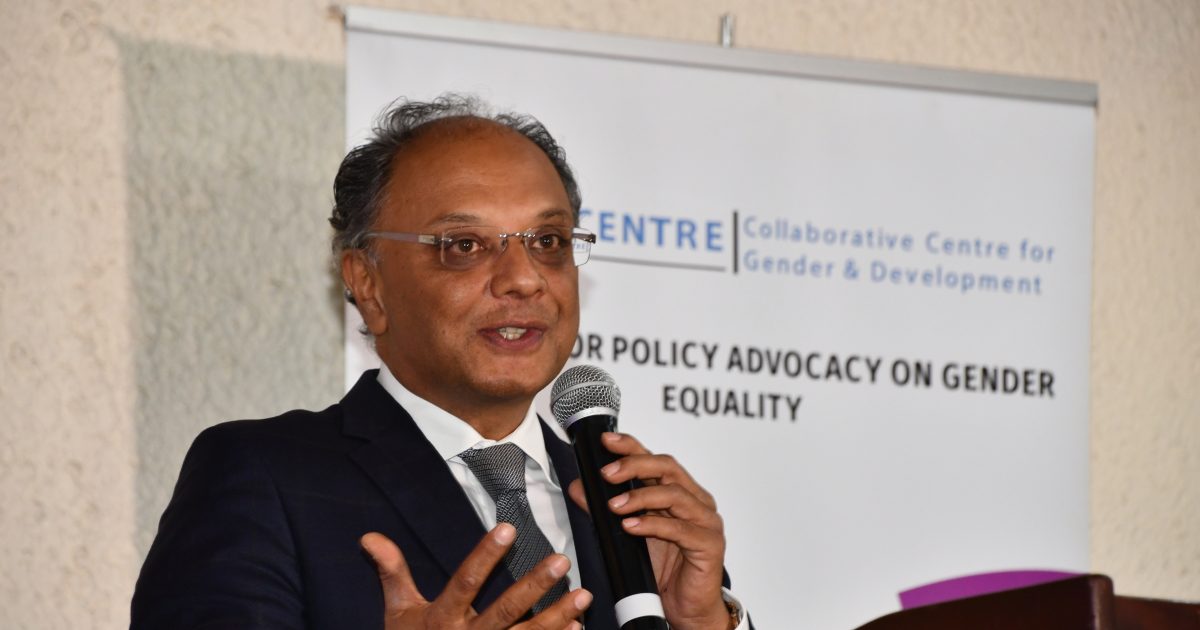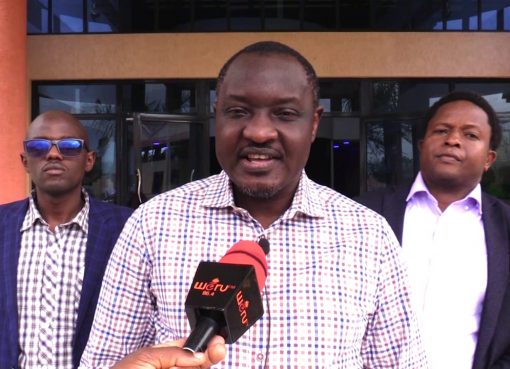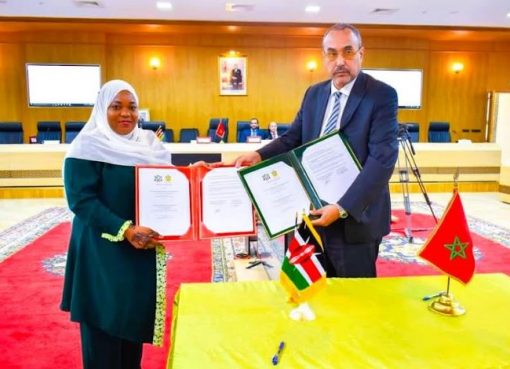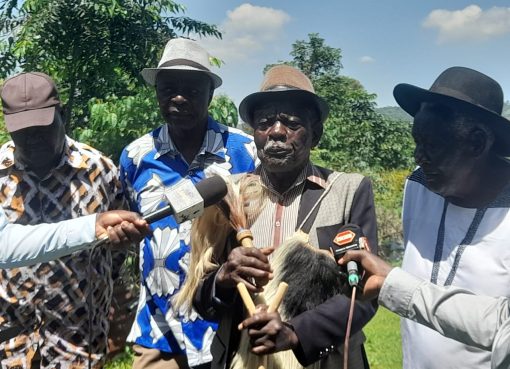The government in collaboration with the Centre for Gender and Development of East African Civil Society Organization Forum (EACSOF) and other partners are in the process of putting in place policies and programmes that will liberate women engaged in trade, from destitution and poverty.
Principal Secretary (PS), State Department for East African Community, Dr. Kevit Desai, said women engaging in cross border trade must be empowered on E-platform and ICT development to enable them utilize online trading to increase their volume and values in trade transactions.

He said online trading presents a great opportunity for women in cross border trade, yet most of those engaging in the trade lag behind in the use of such platforms, as shown by the small numbers of women engaging on the 50 Million African Women Speak Platform.
“Many of the traders use the features phones, which is limited in application and are coupled with little technological know-how, which militates against their full potential,” said Desai, urging those in the business to fully embrace online trading, as it is only through being technologically savvy that they can progress.
Dr. Desai said majority of women are engaged in agricultural produce, a need that requires them to be empowered in the area of value addition, as it would address the problem of post-harvest losses, thereby increasing returns on investment by the traders.
“We want to create an empowering ecosystem by developing further infrastructure, innovation, capacity development, have great programmes for capacity development and training, and develop markets to create a business ecosystem,” he said, adding that the government will work with communities for greater success.
The PS was speaking at a Nairobi hotel, during the Strategic Partnership Breakfast meeting between the State Department for East African Community, Collaborative Centre for Gender and Development (CCGD), University of Nairobi Women’s Economic Empowerment Hub and East Africa Civil Society Organization’s Forum (EACSOF).
The meeting aims to identify and strengthen areas of collaboration with focus on creating a gender responsive cross border trade program along the EAC transit corridors and one Stop Border Posts (OESBs), to improve the livelihoods of women and the people with disabilities.
The programmes that will include infrastructure upgrades and capacity development of traders’ aims at enhancing market accessibility for small and medium enterprises involved in informal cross border trade in Namanga, Busia, Isebania, Taita Taveta, Lunga Lunga and Malaba.
Dr. Desai announced that the State Department of EAC has designed gender responsive cross border trade projects, along the East African Community transit corridors and One Stop Border Posts, to enhance market access for Small and Medium Enterprises involved in informal cross border trade in Namanga, Busia, Isebania, Taita Taveta, Lunga Lunga and Malaba.
“The projects which include infrastructure upgrades and capacity development of traders and the proposed Busia Cross Border market and the Safe Trade Zone Emergency facility will provide suitable trading environment for cross border traders,” said Desai.
He at the same time urged the collaborative partners to benchmark activities being undertaken by the Kenyan cross border women traders, both within the country and within the region, as well as increase sensitization of the cross border women traders, on the simplified trade regime in order to achieve formalization of the cross border trade.
“As we focus on the new areas of collaboration, I emphasis on research, policy advocacy and monitoring and evaluation,” said Dr. Desai.
He said the entry of University of Nairobi as a partner in research will enhance the policy development process, through evidence based decision making process.
Regarding Covid-19 pandemic, the PS said most women and girls have been adversely effected, singling challenges of sexual and Gender Based Violence and commended CCGD for complementing government‘s efforts, by establishing victim rescue centers in Busia and Kajiado counties.
In his remarks, the Chief Executive Officer, Collaborative Centre for Gender and Development, Mr. Masheti Masinjila, said his organization is seeking dialogue with partners on gender issues, that will open doors to strengthen the challenges facing women in the cross border trade, establish a strong bloc and provide them with a common market to sell their goods.
“We are looking forward for a situation where people in the EAC will be able to register in any institution of higher learning, work in any of the member countries without hitches,” he said.
He added his organization was collaborating with the county governments’ on women empowerment programmes in cross border trade so as to come up with a long term plan that will provide them protection, provision of working spaces and the establishment of child care centres, since their trade involves movement.
Mr. Masinjila who is also the Chair of East African Civil Society Organization Forum, Kenya Chapter, noted that the research that will be undertaken by the University of Nairobi, will work on a common market protocol, a people centered community, something that a common woman can do and associate with .
Prof. Wanjiru Kabira, Head, University of Nairobi Women’s Economic Empowerment (WEE) Hub, said the research that the UON Wee hub will undertake, will focus on how the interest of women, children and People with Disabilities, as well as ensure that it increases women’s entrepreneurs.
“We will come up with data that can be used to negotiate a case for the country, to empower women and enable them to have more income generating activities,” she said.
By Bernadette Khaduli





